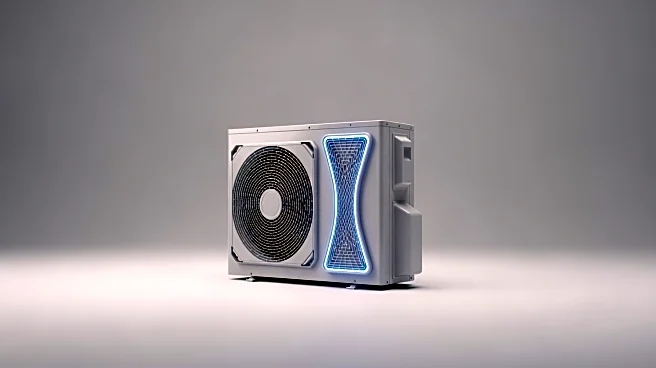What's Happening?
Consumer Reports has released data identifying American Standard and Trane as the top-rated heat pump brands for 2025. Heat pumps have become the most popular heating appliance in the U.S., with over 5 million
units sold in 2024, surpassing gas furnaces. The survey, conducted among heat pump owners, rated 29 brands based on reliability and satisfaction. American Standard and Trane received the highest scores, although other brands like Airease and Allied scored higher in reliability. The survey highlights the efficiency of heat pumps, which can reduce energy bills by $300 to $650 annually. Despite higher installation costs compared to gas furnaces, heat pumps offer long-term savings and improved performance in extreme cold conditions.
Why It's Important?
The growing popularity of heat pumps reflects a shift towards more energy-efficient heating solutions in the U.S. This trend is significant for consumers looking to reduce energy costs and for manufacturers aiming to capitalize on the demand for sustainable technologies. The high ratings of American Standard and Trane suggest these brands are well-positioned to lead the market, potentially influencing consumer choices and industry standards. The efficiency of heat pumps aligns with broader environmental goals, offering a cleaner alternative to traditional heating methods. This shift could impact the heating appliance market, encouraging innovation and competition among manufacturers.
What's Next?
Homeowners considering heat pump installations can benefit from tax credits of up to $2,000 if installed by December 31, 2025, according to the IRS. This incentive may drive further adoption of heat pumps, influencing market dynamics and consumer behavior. As the technology continues to evolve, manufacturers may focus on enhancing efficiency and reducing costs to maintain competitiveness. The industry could see increased investment in research and development to address challenges such as installation costs and performance in colder climates. Stakeholders, including policymakers and environmental groups, may advocate for further incentives to promote energy-efficient technologies.








